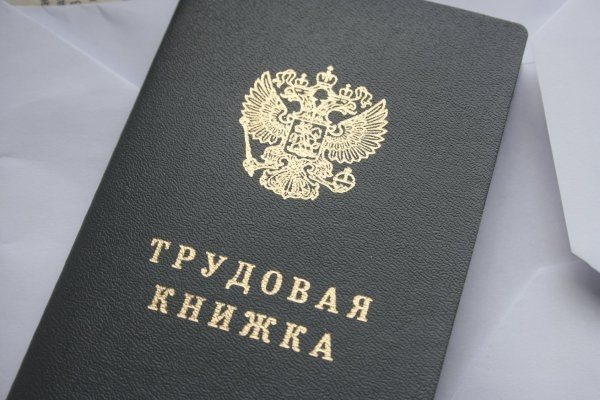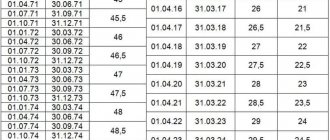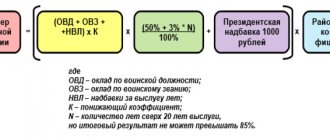What is civil service experience?
The length of service in the state civil service is the full period of time during which the employee worked in the public administration system. Using this indicator, various organizational and financial issues related to the professional activities of a government agency employee are regulated.
Experience is a necessary criterion for the following actions:
- selection of candidates for civil service positions;
- calculation of incentive payments and bonuses to the basic salary;
- determining the duration of additional leave;
- calculation of a civil servant's pension.
The civil service is divided into federal and service of the constituent entity of the Russian Federation. The rules of law regarding the length of service of a federal employee are reflected in federal law. For a civil servant in a constituent entity of the Russian Federation, other requirements established by regional authorities are possible.
Issues related to the length of service in the civil service are reflected in the following laws and acts:
- Law No58-FZ;
- Law No.79-FZ;
- Law No. 166-FZ;
- Presidential Decree No.1532;
- Presidential Decree No.1141.
What is included in the length of service in the state civil service?
The length of service in the state civil service is the total duration of periods of civil service and other activities, taken into account when determining the right to a pension of federal state civil servants and when calculating the amount of this pension;
The length of service in the state civil service for the purpose of a long service pension includes periods of service (work) in positions in the federal state civil service, state positions in the federal civil service, state positions in federal civil servants and other positions.
In accordance with the Decree of the Government of the Russian Federation dated September 15, 2003 N 570, Order of the Ministry of Health and Social Development of the Russian Federation N 1648 n “On approval of the procedure for calculating and confirming the length of service in the state civil service for assigning a pension for long service to federal civil servants”, Decree of the President of the Russian Federation dated September 20, 2010 N 1141 “On the list of positions, periods of service (work) in which are included in the length of service of the state civil service for the assignment of a pension for the length of service of federal state civil servants” the following periods of work (service) are included in the length of service:
Government positions of the Russian Federation, constituent entities of the Russian Federation, federal state civil service of the Russian Federation, state civil service of the constituent entities, public positions of the civil service of the constituent entities of the Russian Federation, municipal service positions.
Positions of prosecutors. Positions of employees of the Investigative Committee of the Russian Federation. Positions (military positions), service (military service) in which, in accordance with the legislation of the Russian Federation, is counted as length of service for the purpose of assigning a pension for length of service to persons who served in military service, service in the internal affairs bodies of the Russian Federation, the State Fire Service, control over the circulation of narcotic drugs and psychotropic substances, institutions and bodies of the penal system. Positions of employees of federal tax police bodies, which were determined in the manner established by the legislation of the Russian Federation. Positions of employees of the customs authorities of the Russian Federation Municipal positions (deputies, members of elected bodies of local self-government, elected officials of local self-government, members of election commissions of municipalities operating on a permanent basis and being legal entities, with voting rights), replaced on a permanent basis (full-time) basis. Positions of managers, specialists and employees, including elected positions filled on a permanent basis. Positions held by citizens of the Russian Federation in interstate (intergovernmental) bodies created by member states of the Commonwealth of Independent States with the participation of the Russian Federation, in the apparatus of the Executive Committee of the Union of Belarus and Russia and the Secretariat of the Parliamentary Assembly of the Union of Belarus and Russia, positions filled on a permanent professional basis in bodies of the Union State and their apparatuses. Positions in trade union bodies occupied by employees exempted from positions in government bodies as a result of election (delegation) to trade union bodies, including positions occupied by exempt trade union workers elected (delegated) to the body of the primary trade union organization created in a government agency, in accordance with the federal by law. Positions of managers, specialists and employees, elected positions, filled on a permanent basis, in government and administrative bodies, organizations and institutions that carried out certain functions of public administration in accordance with the legislation of the USSR and union republics, until December 31, 1991. Individual positions of managers and specialists at enterprises, institutions and organizations, experience and knowledge of work in which were necessary for federal state civil servants to perform duties in the position of the federal state civil service being filled (in the manner determined by the Government of the Russian Federation). The total periods of work in these positions should not exceed five years.
What is included in the average monthly earnings from which the size of the pension of federal civil servants is calculated
The size of the long-service pension for civil servants is calculated from their average monthly earnings for the last 12 full months of federal state civil service preceding the day of its termination or the day they reach the age entitling them to an insurance pension.
Average monthly earnings are cash support, monetary remuneration, monetary allowance, wages and other income that are taken into account to calculate the amount of the state pension pension of a citizen who applied for this pension, expressed in monetary units of the Russian Federation and attributable to periods of service and other activities included in his length of service or work experience;
The rules for determining the average monthly earnings from which the amount of the long-service pension for federal civil servants is calculated were approved by Decree of the Government of the Russian Federation of October 17, 2009 N 818.
In accordance with the above rules, to determine the average monthly salary, the salary of civil servants is taken into account, consisting of the following payments:
monthly salary of a civil servant in accordance with the position he fills in the federal state civil service (hereinafter referred to as the official salary); monthly salary of a civil servant in accordance with the class rank assigned to him in the federal state civil service; monthly bonus to the official salary for length of service in the federal public civil service; monthly bonus to the official salary for special conditions of the federal public civil service; monthly percentage increase to the official salary for work with information constituting a state secret; monthly cash incentive; bonuses for completing particularly important and complex tasks; a one-time payment when providing annual paid leave and financial assistance paid from the civil servants’ wage fund
The average monthly earnings are calculated at the choice of the civil servant based on salary and other payments for the last 12 full months of service preceding the day of its termination or the day he reaches the age entitling him to an old-age insurance pension.
When calculating average monthly earnings, the time a civil servant is on leave without pay, for pregnancy and childbirth, for caring for a child until he reaches the legal age, as well as the period of temporary disability are excluded from the calculation period. The amounts of corresponding benefits accrued during this time are not taken into account.
The amount of average monthly earnings is determined by dividing the total amount of salary and other payments accrued in the billing period by 12.
If the time the civil servant is on appropriate leave and the period of temporary disability are excluded from the billing period, the amount of average monthly earnings is determined by dividing the specified amount by the number of days actually worked in the billing period and multiplying by 21 (the average monthly number of working days per year).
The amount of average monthly earnings cannot exceed 2.8 of the official salary (0.8 of monetary remuneration) established for a civil servant in the billing period or maintained in this period in accordance with the legislation of the Russian Federation.
The minimum length of service in the civil service for a pension in 2020 is 17 years.
Simultaneously with the increase in the requirements for the minimum length of service in the civil service, the requirements for the age of civil servants, upon reaching which they are assigned an old-age insurance pension, have also been increased.
It is necessary to take into account that the right to receive a long-service pension for civil servants arises when establishing an old-age insurance pension or when receiving a disability insurance pension.
Thus, in 2020, the age for receiving a government pension for women was 55.5 years; for men – 60.5 years;
In 2020, for women - 56 years, for men - 61 years;
In 2020 - for women at 56.5 years old, for men at 61.5 years old;
In 2020 - for women - 57 years, for men - 62 years;
In 2021 - for women - 57.5 years, for men - 62.5 years.
So, in 2020, the minimum length of service for granting a pension was 16 years, in 2020 - 16.5 years, in 2020 - 17 years, etc. until 2026 (20 years).
Amount of pension for civil servants based on length of service
Since 2020, the size of the pension for civil servants is calculated depending on the length of service in the state civil service and ranges from 45% to 75% of the average monthly earnings of the Federal State Social Insurance Fund minus the old-age insurance pension (disability), a fixed payment to the insurance pension and increases in the fixed payment to the insurance pension.
For each full year of service in the state civil service in excess of the minimum retirement period, the long-service pension increases by 3% of average monthly earnings. However, the total pension amount cannot exceed 75% of average monthly earnings.
What does it affect?
Positions
The Presidential Decree approved a list of requirements for government positions. These include length of service in the civil service and work experience in the relevant specialty.
There are several groups of positions, each of which has its own requirements for the length of service of a civil servant.
| Job group | Experience in civil service (years) | Experience in specialty (years) |
| HIGHER | 6 | 7 |
| MAIN | 4 | 5 |
| HOSTS | 2 | 4 |
| ELDER | NOT REQUIRED | NOT REQUIRED |
| JUNIOR | NOT REQUIRED | NOT REQUIRED |
Additional payments to the basic salary
Based on the total duration of work in the public sector, the employee is awarded an additional payment to the basic salary.
| Surcharge (%) | Experience (years) |
| 10 | 1-5 |
| 15 | 5-10 |
| 20 | 10-15 |
| 30 | More than 15 |
Additional funded leave
Each civil servant has the right to an additional number of vacation days, which is calculated in proportion to the length of service: 1 vacation day is equal to 1 working day.
The total duration of vacation for specialists in senior and main positions should be no more than 45 days, for leading, senior and junior positions - 40 days.
Additional pension
To approve an additional pension for federal civil servants, three conditions must be met simultaneously:
- 15 years of service or more.
- The period of work in the last position held is at least one year. An exception may be layoffs caused by the cessation of work of the institution or reduction of personnel.
- Legal dismissal from civil service.
The amount of additional pension provision for civil servants of the constituent entities of the Russian Federation is established by regional legislation.
Following parliamentary pensions under threat of payment to officials

State Duma deputies were outraged that pension benefits were being taken away only from them Photo: Anton Belitsky © URA.RU
article from the story
Pension reform in Russia
Following State Duma deputies, pension benefits may be canceled for officials. Let us recall that on August 20, Secretary of the General Council of United Russia Andrei Turchak said that “it would be fair” to cancel all preferences for deputies and senators. This proposal met with a mixed reaction from the assembled United Russia members. Thus, a member of the State Duma Commission on Ethics, Raisa Karmazina, proposed in response to cancel pension bonuses for government officials.
Pension benefits for deputies, officials and security officials have long irritated Russians. As one of the parliamentarians told URA.RU, the issue of pensions for parliamentarians and civil servants was one of the most popular when discussing changes to the pension system in the regions. Let us remember that it was United Russia that took upon itself the responsibility to defend the reforms in the eyes of the public. In addition, the party in power was the only one who supported the reform in the first reading.
They decided to be the first to throw away the privileges of deputies, because they are the ones who will have to adopt the pension reform, says the head of the Center for the Development of Regional Policy Ilya Grashchenkov . “This decision was taken from banal sociology.
People are annoyed that deputies who vote for pension reform for Russians themselves receive impressive pensions,” he told URA.RU.
He is sure that the measure was clearly populist in nature, because the savings on 450 deputies and 170 senators will be minimal. Moreover, it will not in any way harm the well-being of the deputies themselves. “80% of deputies and senators are dollar millionaires and billionaires. And those units that actually live off salaries and pensions can be replaced in the next elections,” he says.
FSB employees can retire early at age 35. This is a record among security forces.
Photo: wikimedia.org/Andrey Stenin
Whether the government will take away benefits from other privileged groups largely depends on the protest activity of Russians themselves, says Pavel Salin . “The authorities will have to respond to mass protests. And if she does not change the parameters for raising the retirement age, then she will have to demonstrate that she is ready to start with herself,” he told URA.RU.
In the event of mass protests, the civil bureaucracy may also lose its privileges along with the deputies, Salin believes. However, even if pension benefits are publicly taken away from officials, the authorities will come up with hidden compensation mechanisms.
The authorities will only cancel benefits for security forces as a last resort. “The ratings are going down. Against the backdrop of political uncertainty, the authorities will count on the support of the power corporation. They need their loyalty more than the loyalty of the civil bureaucracy,” says the political scientist.
Article on the topic

The pension of a State Duma deputy will drop to 18 thousand rubles
Meanwhile, the abolition of pension benefits for security forces would lead to significant budget savings. Thus, according to estimates by senior researcher at the Gaidar Institute Sergei Zhavoronkov , the government spends about 700 billion rubles a year on paying early pensions to security forces (for comparison: the size of the Pension Fund is 6.6 trillion rubles - editor's note). In addition, current legislation allows security forces to retire at the age of 45.
However, the authorities will take these measures only as a last resort, because we are talking about millions of loyal voters, says Vyacheslav Smirnov . “Unlike deputies who spend millions on their election campaigns, these preferences matter to the security forces,” says the URA.RU political scientist. When getting a job in the police, people give up the opportunity to have accounts abroad, travel to the West, and count on these benefits.
In addition, this will undo the authorities’ long-term policy of increasing the prestige of security professions, says Grigory Dobromelov . “For decades, the authorities have increased the prestige of the service of the same police and military. They increased salaries in the Ministry of Internal Affairs to eradicate corruption. To destroy all these achievements with one stroke of the pen, there must be a colossal necessity,” he told URA.RU.
What periods of work of a civil servant are taken into account?
Presidential Decree No. 1574 introduced a list of positions related to the civil service. The period during which a civil servant held one of the positions indicated in the list is included in the total length of service of the employee. Various positions are included in this document:
- Federal;
- Municipal;
- Regional;
- Military;
- Law enforcement;
- Others.
By decision of the management of the government agency, work in positions that are not included in the list is included in the employee’s length of service. The amount of time spent by an employee acquiring the skills and knowledge necessary to perform official duties is also counted towards the service period. Years of work in the USSR public administration system count toward the employee’s total length of service.
The following periods of work cannot be included in the duration of civil service:
- in the role of personnel involved in technical support of government agencies;
- in the organizational department of the construction team;
- as an employee of the party committee at enterprises;
- as chairman of a collective farm;
- in cooperatives;
- private entrepreneur;
- as a contractor;
- as a hired employee for private individuals;
- in commercial organizations.
Some types of activities not reflected in the list are also included in the work experience of a civil servant. These include the following periods of work:
- in liquidated government institutions transferred by law to federal government services.
- in state apparatuses reorganized into federal government bodies;
- in the USSR management system;
- in state corporations and associations created by decree of the Council of Ministers of the USSR.
The types of activities listed above are included in the employee’s length of service by decision of the management of the government agency. If for some reason this cannot be done, you should contact the Ministry of Social Development of the Russian Federation. He is authorized to resolve issues of accrual of length of service for civil servants.
What it is?
Civil service experience is the total total number of periods when a person held positions in organizations included in the list of civil service bodies. The length of service is also considered to be the time of work when a person filled the vacancies indicated in the “List”.

These periods include:
- work in district, city or regional administrations and councils;
- military service, but completion of compulsory military service is not taken into account.
The length of service in this category does not include the time spent working in the civil service, during which the person held a position included in the staffing table for technical support of the full “life activity” of the organization.
These positions include:
- secretary;
- librarian;
- technical employee (in other words, cleaner), etc.
The presence and length of experience is taken into account:
- when calculating the amount of paid leave (depending on how many years a person has worked in the civil service, he may be entitled to several additional days of paid leave);
- when applying for a long-service pension;
- when calculating bonuses to pension payments, as well as to wages;
- when participating in a competition to fill a vacant position as a department head or when receiving a promotion.
List of documents for confirmation
A work book is considered a document certifying the length of service in the civil service. If it is not there, then you can confirm the duration of your government work using an archival certificate. It must be accompanied by copies of orders on entry into position and removal from it.
It is also necessary to confirm that the position held is related to public administration. The following documents are required for this:
- employment history;
- regulations on the state institution where professional activities were carried out;
- instructions on job responsibilities.
Normative base
There are a number of laws and decrees that need to be known and applied when calculating the length of service in the civil service. The main documents include:
- No. 58-FZ “On the public service system” of 2003;
- No. 79-FZ “On State Civil Service” of 2004;
- No. 166-FZ “On State Pension Provision” of 2001;
- Decrees issued by the President:
- “On calculating the length of service in the state civil service of the Russian Federation” dated November 19, 2007 No. 1532;
- “On the list of positions, periods of service for which are included in the length of service of the state civil service” dated September 20, 2010 No. 1141.
How is the calculation made?
In order to calculate length of service, it is necessary to add up all periods of work in areas related to the civil service. The resulting number of days is converted into the number of full years and months.
Military service is also included in the service period, and there are several options:
- if military service was carried out on a contract basis, then 1 working day for 1 day of military service is included in the length of service;
- if military service was carried out through conscription, then 2 days of civil service are counted for 1 day of military service;
- if the conscript took part in hostilities or was in the hospital, then each day is equivalent to 2 days of compulsory military service.
Example
Citizen Ivanov I.I. was a deputy of the regional Duma from the district from February 4, 2004 to February 3, 2008. From May 20, 1999 to October 20, 1999, he served in the army. From October 21, 1999 to July 20, 2000, he was in a hot spot.
The length of his civil service is calculated:
- 4 years as a deputy (February 4, 2004 – February 3, 2008), 4 years of experience are recorded.
- 5 months 1 day (from May 20 to October 20, 1999) – compulsory military service. Since the 1st day of a conscript in the army is equal to the 2nd day of civil service, 10 months and 2 days are recorded in the length of service.
- 9 months 4 days (from October 21, 1999 to July 20, 2000) – conscript service in a hot spot. 1 day of combat is equal to 2 days of military service, and 1 day of conscription service in the army is equal to 2 days of civil service. The length of service is 3 years 16 days.
- The total length of service in the civil service of I.I. Ivanov is 7 years 10 months 18 days.
The procedure for calculating length of service when entering the civil service:
- Commission meeting.
- Review of documents confirming experience.
- Protocol of the commission.
- Issuance of a legal act (order, instruction).
How to calculate government experience?
To make the calculation, it is necessary to confirm the length of service by presenting documents that the person was actually in the public service. The following types of paper are usually used:
- employment history;
- certificate from the archive;
- military ID.

Based on the data specified in the document, the total length of service is calculated. In this case, they are guided by the following rules:
- regardless of how many days there are in a given month, every 30 days worked in the civil service is equal to a month;
- one year of experience consists of 12 months.
Let's look at an example of a calculation: A. A. Ivanov has the following entries in his work book:
- From 10.10.2010 to 14.12.2012 – leading employee in the social security department.
- From 12/20/2012 to 09/15/2020 – Director of Horns and Hooves LLC.
- From 10/01/2017 to 12/01/2017 – accountant in the district department of the Pension Fund.
The calculation will proceed as follows:
1. We write out the periods of work in the civil service - these are points 1 and 3.
2. We calculate both periods taking into account calendar days:
- 21 + 30+31 (for 2010);
- 31+ 28 + 31 + 30+31+30+31+31+30+31+30+31 (2011);
- 31+ 29 + 31 + 30+31+30+31+31+30+31+14 (2012);
- 31+30 (2017).
Total: total length of service is 827 days.
3. Divide the resulting number by 30 and get 27 months and 17 days. Divide months by 12.
4. We get the result: the total length of service of A. A. Ivanov is 2 years 3 months and 17 days.
Who are federal civil servants?
First, let's look at who is considered to be government employees and what specific professions can be included in their list. Federal state civil servants mean those employees of federal state civil institutions who, at the same time, receive monetary payments in connection with the performance of assigned duties and positions.
In other words, these are those citizens who occupy ordinary government positions and work exclusively in official positions.
Such employees include the following citizens:
- Law enforcement officers, for example, such as police officers.
- Military personnel, as well as those units that directly relate to them.
- Workers of the fire and tax services, as well as organizations whose responsibilities include maintaining law and order in the country.
- Employees of various regional institutions whose responsibilities directly include providing assistance and support to the local population.
A large number of benefits are also provided to these types of citizens. All of them are directly related to the fact that upon retirement they are entitled to a whole list of additional privileges. Obtaining these privileges is also associated with performing conscientious and high-quality work and serving in positions held.
One of the benefits includes state allowances provided that you have a minimum work experience, which is equal to 15 years of service. And the amount of the bonus directly depends on the length of the length of service, since the larger its size, the more money is accrued. However, if there is a minimum type of experience, the bonus will be almost half of the employee’s previous salary.
How is civil service experience calculated?
The period of service (work) in the positions provided for in the List of Positions is included in the length of service for the purpose of granting a long-service pension. As a general rule, periods of federal public service (work) are summed up. The inclusion of periods of service (work) in the length of service of the state civil service for the assignment of a long-service pension is carried out upon the application of a federal civil servant when applying for a long-service pension. In this case, the federal civil servant must contact the federal government agency in which he held a federal civil service position immediately before his dismissal.
If a federal government agency has been abolished or reorganized at the time of application, then the inclusion of periods of service (work) in the length of civil service is carried out by the Ministry of Labor and Social Protection of the Russian Federation.
Periods of service (work) included in the length of service of federal civil servants are calculated and confirmed on the basis of information contained in the work book and other documents.
Sources
- https://www.Consultant.ru/document/cons_doc_LAW_48601/c8a98b0614e75724351dd2b0d9a4b4f4bf417b40/
- https://sovetadvokatov.ru/474-stazh-gosudarstvennoj-sluzhby.html
- https://clubtk.ru/trebovaniya-k-stazhu-gosudarstvennoy-grazhdanskoy-sluzhby
- https://ZnayBiz.ru/kadry/kadrovaya-politika/obshhie/stazh-na-gossluzhbe.html
- https://pfrf-kabinet.ru/grazhdanam/pensioneram/pensiya-u-gossluzhashhih-raschet-stazha-i-nadbavok.html
- https://pfrp.ru/faq/stazh-gosudarstvennoj-sluzhby.html
- https://lawrecom.ru/ischislenie-stazha-gosudarstvennoj-grazhdanskoj-sluzhby/
What privileges does it give
The length of service of the State Civil Service affects the emergence of the right to receive certain guarantees and benefits provided for by law in relation to this category of employees.
These privileges include:
- the right to state pension provision (monthly cash payments for length of service before the general retirement age if you have 20 years of civil service experience from 2026 or an additional payment to the general insurance pension);
- receiving an allowance as part of the monthly salary of the General Staff for length of service;
- provision of additional annual leave, the duration of which directly depends on the GHS period.
Also, federal law, by-laws or regulatory documents of a constituent entity of the Russian Federation may establish other guarantees, the provision of which is tied to a certain duration of government service. For example, at the federal level this is currently rewarded for impeccable and efficient service.
Experience and qualifications
When promoting in the structure of the civil service, not only the applicant’s education, his skills and abilities are taken into account, but also his length of service. These requirements are spelled out in Presidential Decree No. 16, which has the appropriate name - “On qualification requirements for length of service in the state civil service.” It was adopted on January 16, 2017. Earlier decrees have now lost their legal force and are not applied. Depending on what position a person wishes to occupy, he may be required to present a document confirming that his experience in the civil service ranges from 1 to 4 years.
Having government experience provides some privileges. It is determined in the same way as the total length of service, with the only difference being that only the periods when a person worked for the “state” are taken into account. These positions are specified in regulations and documents.
The concept of experience in the civil service
Federal Law “On the Civil Service System of the Russian Federation” No. 58 defines civil servants as people working in legislative, executive or judicial authorities. Military personnel, police, deputies at all levels, and the president are not included in their number. A complete list of professions that fall under the category of state servants can be found in the special register of positions.
The working time of civil servants is calculated according to the Federal Law of July 27, 2004 N 79 (as amended on July 29, 2017) “On the State Civil Service of the Russian Federation.”










